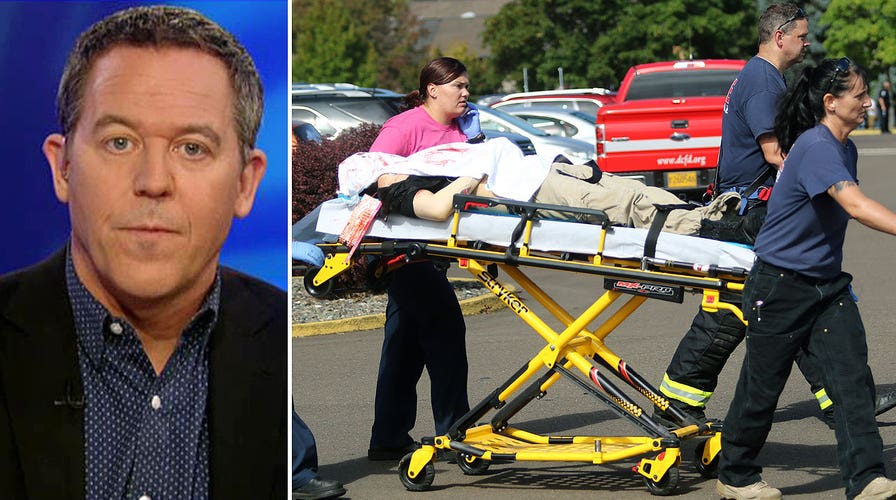Gutfeld: Should the media treat mass shootings as routine?
Until we admit our complicity and separate losers from the limelight this won't end
An angry President Obama said it was OK to politicize yesterday's massacre. Fair enough. Does that opinion hold for all sides or just those who will agree on him? He also said these mass shootings seemed routine. It's true, but what if we actually treated such crimes that way, routinely, not incidents that drown out world events? Perhaps then, we would no longer create an appealing path for copycat creeps.
It's the contagion of infamy. Shooters find inspiration in the press that previous shooters get. It's a fact, press that we offer in spades. The worst question is often the first -- who is the shooter? -- which powers an engine of attention that eggs on future atrocity. A loser sees he can garner fame unmet in prior obscurity. I'm with this guy:
(BEGIN VIDEO CLIP)
JOHN HANLIN, DOUGLAS COUNTY SHERIFF: Let me be very clear: I will not name the shooter. I will not give him the credit he probably sought prior to this horrific and cowardly act.
I continue to believe that those media and community members who publicize his name will only glorify his horrific actions. And eventually, this will only serve to inspire future shooters.
(END VIDEO CLIP)
We know this: shooters are obsessed with previous shooters. Which is why we must share some blame and separate losers from the limelight. Treat this crime like teen suicide and deliberately downplay it to block its spread. At least that's a solution. Not pointless passion at a press conference.
What did we do before cable? Where we transfixed in an agitated state addicted to breaking news? No, we heard a bulletin on the car radio, expressed grief and then we pressed on. Now it's changed. We get 911 calls, eye witnesses, friends of eye witnesses, texts, tweets, relatives and neighbor testimonials, commentaries, summaries. We create 10 feature length films around the actions of a fiend. We become the marquee for infamy. We spend hours on the motive, when let's be honest, we are the motive.

